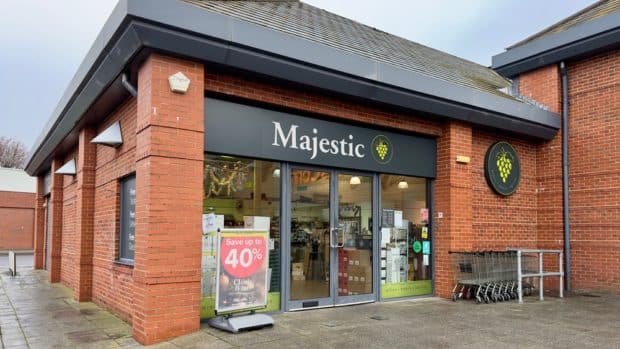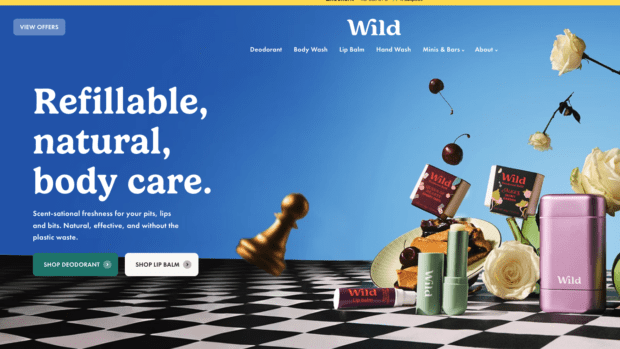Henri Lloyd, the British heritage sailing apparel and fashion brand, has partnered with eCommerce platform, Centra, to pivot to a digital-first, direct-to-consumer (DTC) only business model, built around its online flagship store, in response to the accelerated digitisation of retail.
Founded in 1963 in Manchester by Henri Strzelecki and Angus Lloyd, Henri Lloyd pioneered the use of innovative technologies and fabrics, such as the first non-corrosive zipper made of nylon, the hand taping of seams and the incorporation of Gore-Tex waterproofing in its high performance breathable wet weather gear. The brand became famous for supplying protective clothing to the early pioneers and explorers of global circumnavigation. The original innovative design concepts remain the template for all modern waterproof performance clothing today.
In the 1980s the highly influential youth movement of the Milanese Paninari adopted Henri’s Original Consort Jacket as its uniform, propelling it into the ‘casuals’ subculture and securing Henri Lloyd’s position as a lifestyle brand across Europe.
Henri Lloyd’s has six physical stores and are all located in the UK including the coastal locations of Cowes, Salcombe and Dartmouth. Recognising the growing demand from consumers for direct relationships with brands, coupled with the desire to control its premium brand positioning, Henri Lloyd understood the need to invest in digital transformation in order to make the brand accessible to customers all over the world while retaining its core value of sustainability – with a majority of products being made out of fabrics that can be recycled or produced from recycled waste products.
To support its digital transformation, Henri Lloyd selected DTC specialist platform, Centra, because of its focus on customisation and digital on-brand experiences as well as the scalability required to meet Henri Lloyd’s ambitious growth targets.
New product development and design is managed by an in-house team split between Manchester, Sweden and Italy, with six bi-monthly product ‘drops’ across the year. The overall product range is split 50/50 between technical products and apparel, with approximately 40% of product for use at sea and the remainder for on land. Each ‘drop’ is staggered for release online at the appropriate point for the consumer moment, creating highly relevant product with different variants. Tailored to the needs of a modern digital brand, the new site makes use of Centra’s “Display” functionality to present products in the most compelling way to each visitor.
With a heritage rooted in global circumnavigation, the brand has always been international in outlook and now sells in 48 countries globally. With its largest markets in the UK, Scandinavia, Italy & the US, the ability to trade seamlessly and sustainably cross-borders was crucial, especially as its only physical stores were shuttered during the Covid-19 lockdown. Centra’s headless platform allowed the brand to operate a responsive site, where content and products seamlessly flow together for all international markets through one dynamic store, which automatically adapts content, campaigns, language and currency depending on the visitor’s Geo IP and history.
Launched in March 2020, the agility and scalability of the new DTC model quickly became apparent as lockdown created the perfect storm for innovation across the business. With the furlough scheme not in place in Poland, where one of Henri Lloyd’s main production factories is located, the decision was made to utilise the brand’s technical expertise to produce protective face coverings. Featuring replaceable, washable filters, Henri Lloyd’s face coverings sold out seven times before the end of April with the highest sales figures recorded in the UK and Australia. In addition, a high level of sales across the business, have seen year-to-date (YTD) sales exceed targets.
To support the rapidly changing requirements of customers as lockdown conditions shifted, demand for lifestyle products soared as the need for sailing apparel reduced, marketing budget was reallocated to focus around paid social and Google ads as the brands marketing strategy was refocused as Graham Allen, head of sales & marketing at Henri Lloyd, explains.
“Covid-19 created a situation that made us very innovative as a team and coupled with an explosion of business during the lockdown has pushed us to further hone our customer relationships. Operating as a pure DTC brand we have embedded a new level of responsiveness into the business. We have shifted our strategy to focus on what our customers want and need from us on a daily basis and so grow the emotional connection with them.”
Supporting this strategy is the Henri Lloyd Racing Club, launched in August, which allows the brand to own relationships with professional and weekend warrior sailing crews by providing the latest performance kit, priority access to product releases and access to competitions and experiences. In just six weeks the initiative has already met its initial membership target.
It’s digital-first approach, coupled with an international business structure, has positioned Henri Lloyd well to face meet the ongoing trading challenges created by Covid-19 and Brexit.
“Digital transformation sits at the heart of our long-term growth strategy, so it was imperative we had the right infrastructure in place to support us, both now and in the future. The Centra team has worked collaboratively with us at every stage of the project, consulting on best practice and quickly and efficiently managing any complexities that have arisen,” commented Allen.
Martin Jensen, CEO of, Centra commented: “The retail industry has transformed rapidly and we are delighted Centra, the only eCommerce platform entirely focused on fashion and lifestyle brands, has allowed Henri Lloyd to rapidly develop a global, online operation at a time when delivering a frictionless, customer-first experience is more critical to business success, and indeed survival, than ever.
“By using the Centra platform, Henri Lloyd now has a scalable and future-proof solution that can support the business’ expansion plans, whilst ensuring customer experience is upheld at each touchpoint,” he concluded.








Share